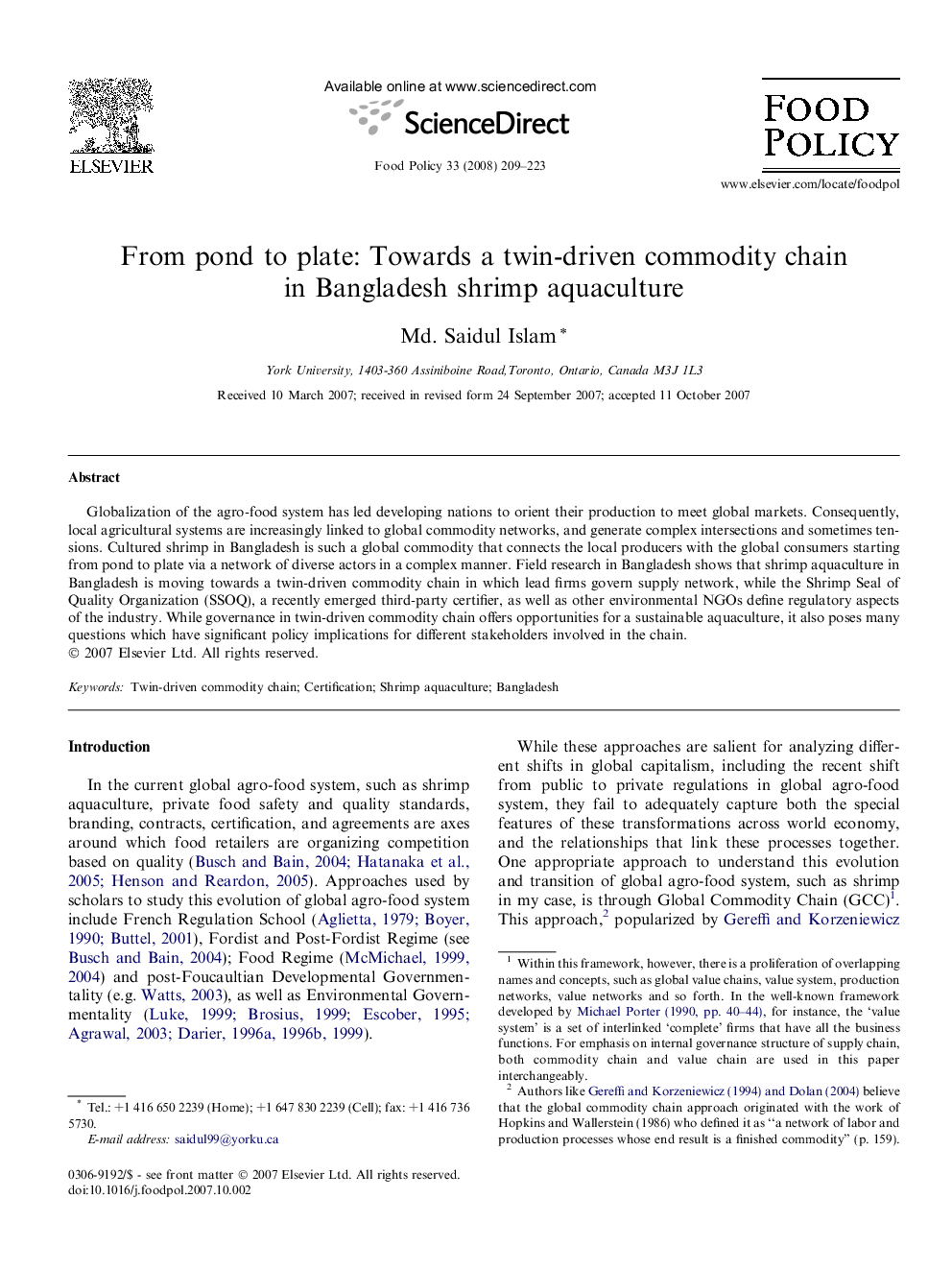| Article ID | Journal | Published Year | Pages | File Type |
|---|---|---|---|---|
| 5070975 | Food Policy | 2008 | 15 Pages |
Abstract
Globalization of the agro-food system has led developing nations to orient their production to meet global markets. Consequently, local agricultural systems are increasingly linked to global commodity networks, and generate complex intersections and sometimes tensions. Cultured shrimp in Bangladesh is such a global commodity that connects the local producers with the global consumers starting from pond to plate via a network of diverse actors in a complex manner. Field research in Bangladesh shows that shrimp aquaculture in Bangladesh is moving towards a twin-driven commodity chain in which lead firms govern supply network, while the Shrimp Seal of Quality Organization (SSOQ), a recently emerged third-party certifier, as well as other environmental NGOs define regulatory aspects of the industry. While governance in twin-driven commodity chain offers opportunities for a sustainable aquaculture, it also poses many questions which have significant policy implications for different stakeholders involved in the chain.
Related Topics
Life Sciences
Agricultural and Biological Sciences
Food Science
Authors
Md. Saidul Islam,
